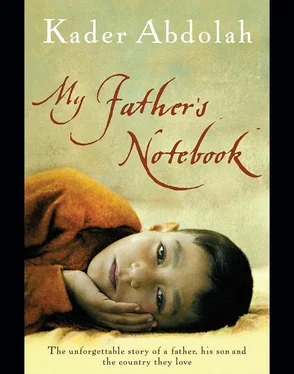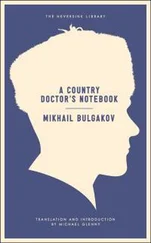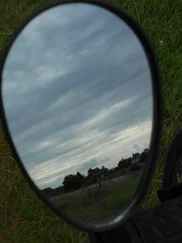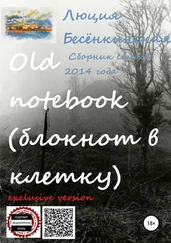“Yes, Ishmael, you have to help me.”
Just thinking back to that day makes me cover my face in shame. Why me? Why me, of all people?
The principal leaned forward and said that I wasn’t like all the other students. That I read books and knew a lot about the world. That the others were farm boys who didn’t know the first thing about modernisation. Then, in strict confidence, he explained what he wanted.
I didn’t have to do anything out of the ordinary on the crown prince’s birthday, he assured me. All I had to do was show that I was every bit as cultured as a schoolboy in Tehran and just as modern as a boy in Paris.
The red-letter day arrived. The mayor ushered in his important guest and the two of them sat in reserved seats in the front row. I peeked out from behind the curtain to get a good look at the important guest and the crowded auditorium. When the curtain went up, I would dance. I would dazzle the mayor and the students and show them that we, too, were modern. No man in my family — from Adam to Ishmael — had ever done such a thing before.
When the curtain went up, I would lift my arms in the air, move my hips a bit, bend over and straighten up again, exactly as the mayor had taught me.
Just before I was about to go on, however, the principal suddenly appeared with a dancing-girl’s costume and a wig. “Here, put these on!”
Only God and the principal knew that the costume and the wig hadn’t been part of the bargain. All I was supposed to do was dance like a Parisian schoolboy. That in itself was a huge step, a giant leap forward, in this ultra-conservative town.
“Quick! Take off your trousers!” the principal said.
“What?”
“Put this on!”
The principal would never have dared to pull such a dirty trick on any other schoolboy. He knew that the boy’s family would kill him. He’d picked me because he figured that my disabled father wouldn’t be a threat.
I fought them off, but the principal held me down while the vice-principal pulled off my trousers and shoved on the skirt. Then he jammed the wig on my head, applied red lipstick to my mouth and pushed me out onto the stage.
The musicians burst into loud song.
I stood on stage, not moving.
“Dance!” the principal hissed at me from behind the curtain.
I looked at the audience. The students were astonished, but nobody recognised me. The mayor smiled and clapped his hands. The musicians played even louder.
“Dance!” the principal hissed again.
I began to dance.
Even now the thought of it makes me break out in cold sweat. I look out of the window at the sea, at the pent-up sea banging its fists against the dyke.
My short skirt billowed up to reveal my white cotton underpants. There were laughs, cheers, and catcalls. The mayor slapped his knees in delight.
Suddenly I saw my father striding towards the stage. The policemen were hard on his heels, hoping to stop him. Even though he was sick, he pushed everyone aside and climbed onto the stage. He picked me up, threw me over his shoulder, and leapt to the floor. Then he lost his balance and the two of us fell. The policemen pounced on my father and beat him with their clubs.
Out of respect for my father, I’m not going to tell the rest of the story. Only this: imagine me standing bare-legged, with a trace of lipstick on my mouth, behind the door to the examining room, while a doctor and his assistant stitched up my father’s head wounds.
This, too, shall pass, as does everything. The Persian kingdom no longer exists, nor does the shah. And where’s his crown prince now?
One night I caught sight of him on TV. When Princess Diana died, all kinds of famous people came to her funeral: Hollywood stars, musicians, politicians, and princes and princesses galore.
Dozens of BBC cameras focused on the guests. One of them zoomed in on the face of a muscular young man staring into the lens with the military bearing of a solider. Who was he? Where did I know him from? And then I recognised him.
He, too, was a refugee, just like me.
For years I’d managed to block out this entire episode, then this morning it came flooding back to me.
What had brought my father to school that day? Where had he suddenly come from? How had he known that his Ishmael was in trouble? Was it all a coincidence?
It couldn’t have been. He couldn’t have recognised me with that wig on. Somebody must have told him. But who? Who could have known what the principal was up to?
Maybe the janitor, the pious old janitor. It must have been him. In my imagination I now see him running to our house.
“Allah! Hurry!”
My father just happened to be at home. No, it wasn’t that much of a coincidence: he was sick a lot back then, so sick that he sometimes spent a week in bed.
That day changed my life and my father’s life completely. For years afterwards, the boys in my neighborhood never gave us a moment’s peace. They even chased me in my dreams. I ran away from them, panting, but they always caught me and beat me to a pulp. I couldn’t fight back because I had to hold my belt with all my might to keep them from pulling down my trousers. They wanted another look at my bare legs. Whenever they ran into my father, they pointed at the scars on his head and unbuckled their belts. He tried to catch them and they threw stones at him.
These scenes are too painful to remember, much less write about.
Those were the years in which we took a detour on our way home to avoid running into the boys. Those years of humiliation for me and my father were golden years for the shah and his crown prince. That crown prince is now living in exile, too, and both of us have lost our fathers.
Later he and his father suffered countless humiliations, especially when the son could find nowhere for his father to die and after that nowhere to bury him.
He finally found a grave for his father in Egypt.
• • •
I resigned myself to my fate. As soon as school was over, I raced home and sought refuge in books. In novels from the West.
I don’t know what that thin, worn book was doing in our house or who had left it there. Maybe my father had found it somewhere and brought it home. At any rate, it was a real eye-opener. It wasn’t like any book I’d ever read. What was it about? I’ve forgotten, but if I go for a walk and think back to that time, I should be able to remember.
I discovered a bookseller in our area, an old man who not only sold newspapers and magazines but also had a bookcase full of well-thumbed mysteries. I borrowed a few every time I went there and read them at night under the blankets. Then one day he had no more books for me and I thought I’d read all the books in the world.
My father started bringing books home.
“Here! For you!” he’d gesture.
I’d take them from him, flip through them and set them halfheartedly in my bookcase. They weren’t books you’d read for fun. One old book he’d found at work, for example, was about cotton and thread. Another was filled with numbers and tables.
In the beginning it wasn’t a problem: he’d bring me a book and I’d put it in the bookcase. But later he started asking me if I’d read it. “No, not yet, I’ll read it later,” I’d say.
Once he brought home an old company manual and wanted to know what it was about. “Numbers,” I explained. “It’s about one, two, three, four. And about angles and circles.”
“So, it’s good for you?” he said. “Yes, thank you,” I said and slipped it onto the shelf beside the other books.
Sometimes he sat a few feet away from me, not doing anything or saying anything, just quietly watching me read. He was fascinated by books and reading. He wanted to know what it felt like to sit or lie so still and read a book.
Читать дальше












